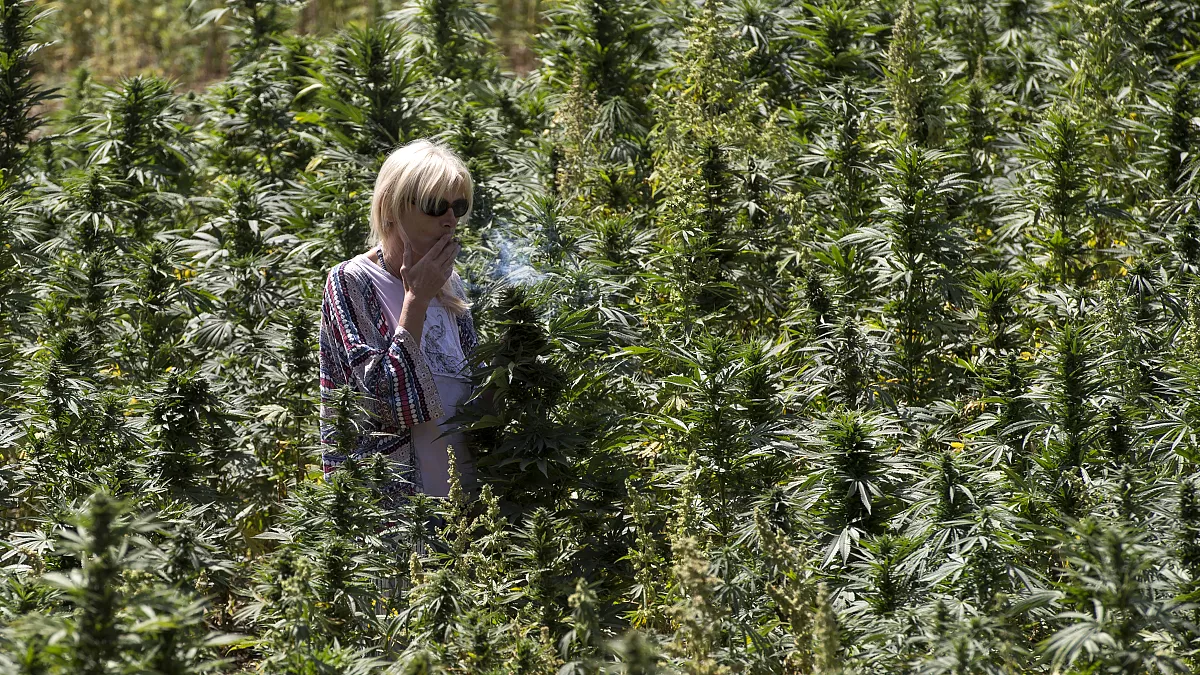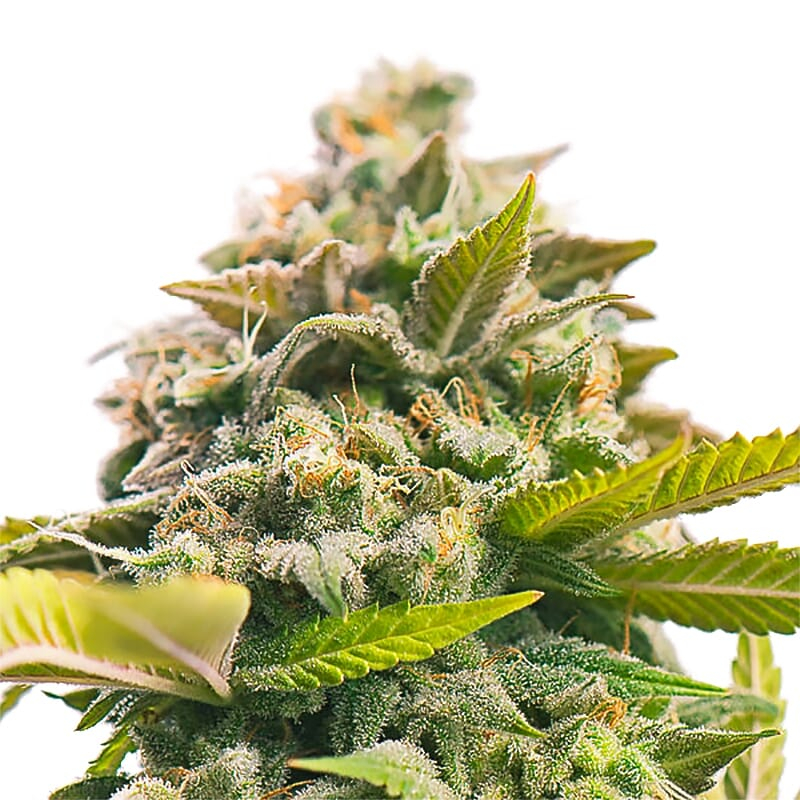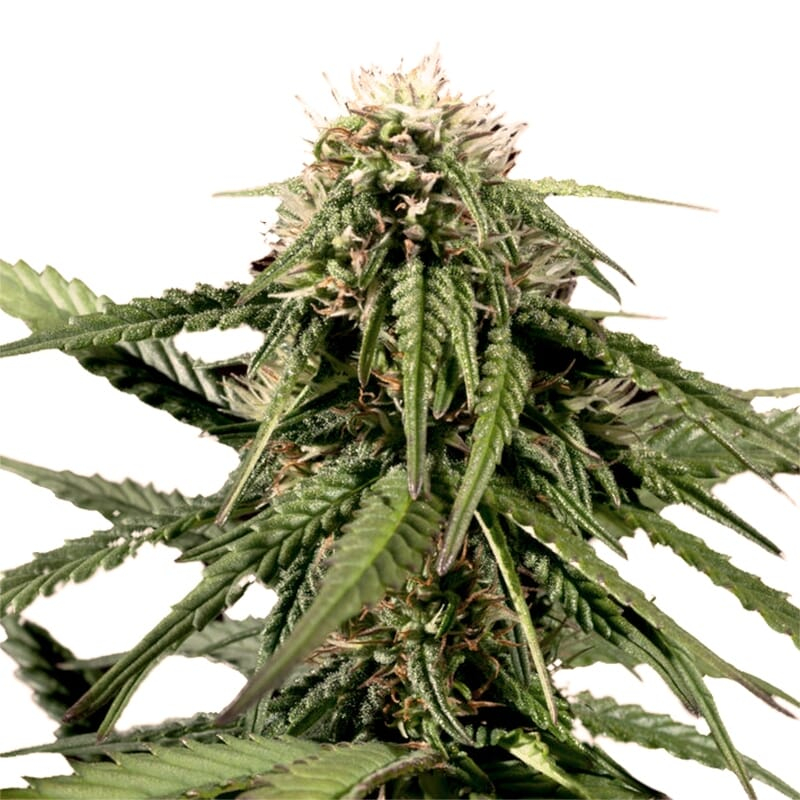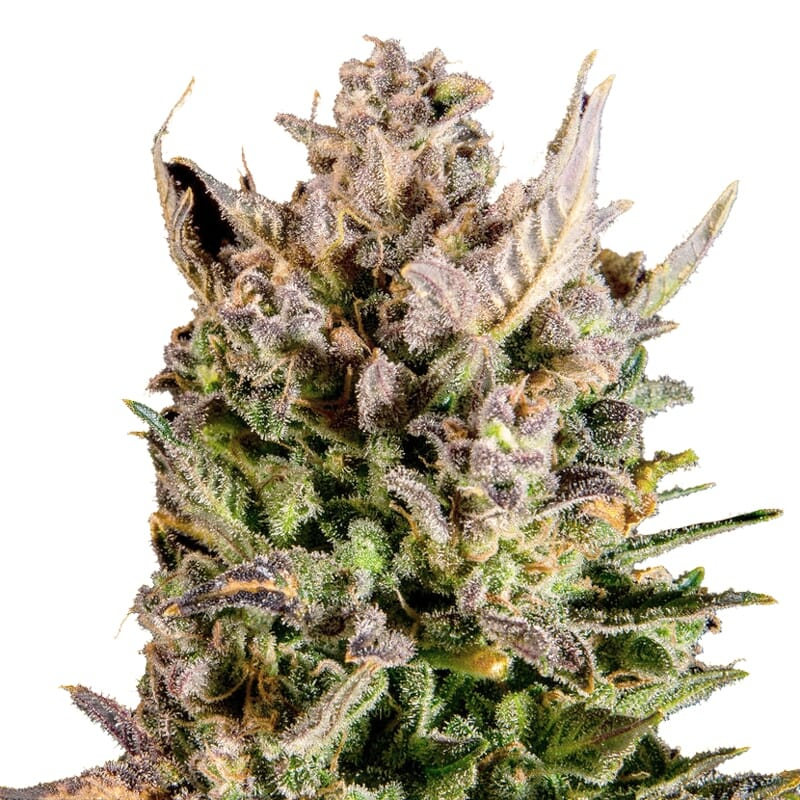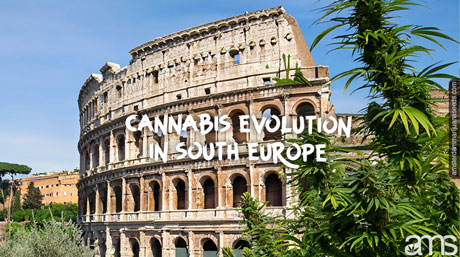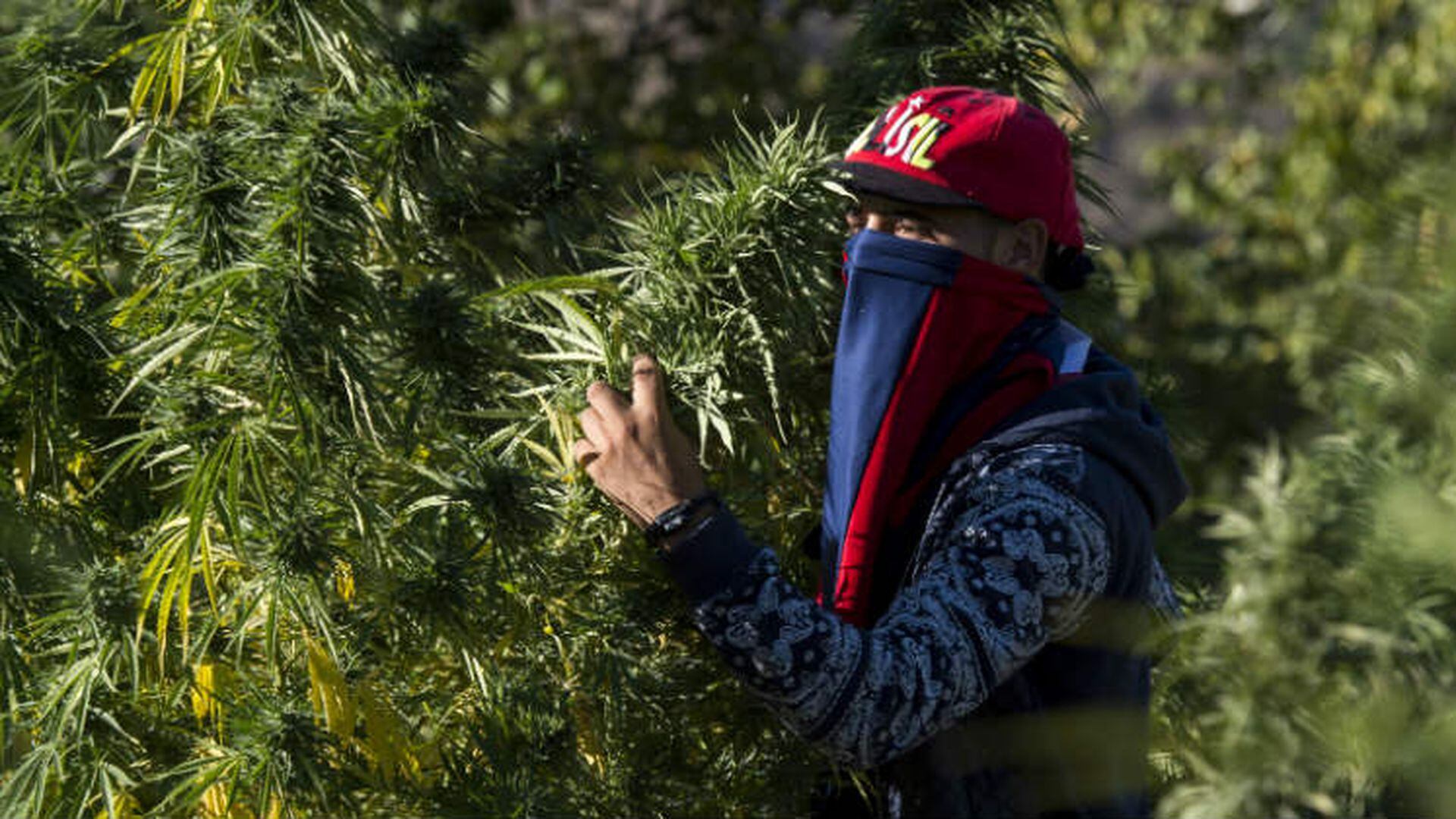Morocco approves legal cultivation of cannabis
After a prolonged waiting period, the exclusively Moroccan cannabis variety known as “Beldia” has received approval from the National Agency for the Regulation of Cannabis Activities (ANRAC) to be legally cultivated in the Alhucemas region. This decision marks a milestone in the push towards legal cannabis cultivation in Morocco, with Beldia intended for use in sectors such as cosmetics and pharmacology.
legal cultivation of “Beldia” in the Alhucemas region
The initiative for this project comes from leaders in the Kétama region, near Alhucemas, with Abdellatif Adbib being the pioneer of this project. Adbib, an expert in cannabis culture and a advocate for its therapeutic effects in a regulated use context, emphasizes that the legal cultivation of the Beldia variety can improve the quality of life for farmers and benefit the regional economy.
The cultivation of Beldia will be subject to strict conditions, with the extent depending on the results of tests and biological analyses, according to informed sources. The agricultural cooperative founded by Adbib in Kétama, consisting of thirty farmers, has received the first authorizations from ANRAC after years of clandestinity and marginalization.
In the northern region, where legal cannabis cultivation has been authorized, ANRAC has established three centers dedicated to the cultivation, harvesting, and processing of cannabis in the areas of Chefchaouen, Taunat, and Alhucemas. The Alhucemas region will be the home of Beldia cultivation, with plans for a processing unit in Kétama.
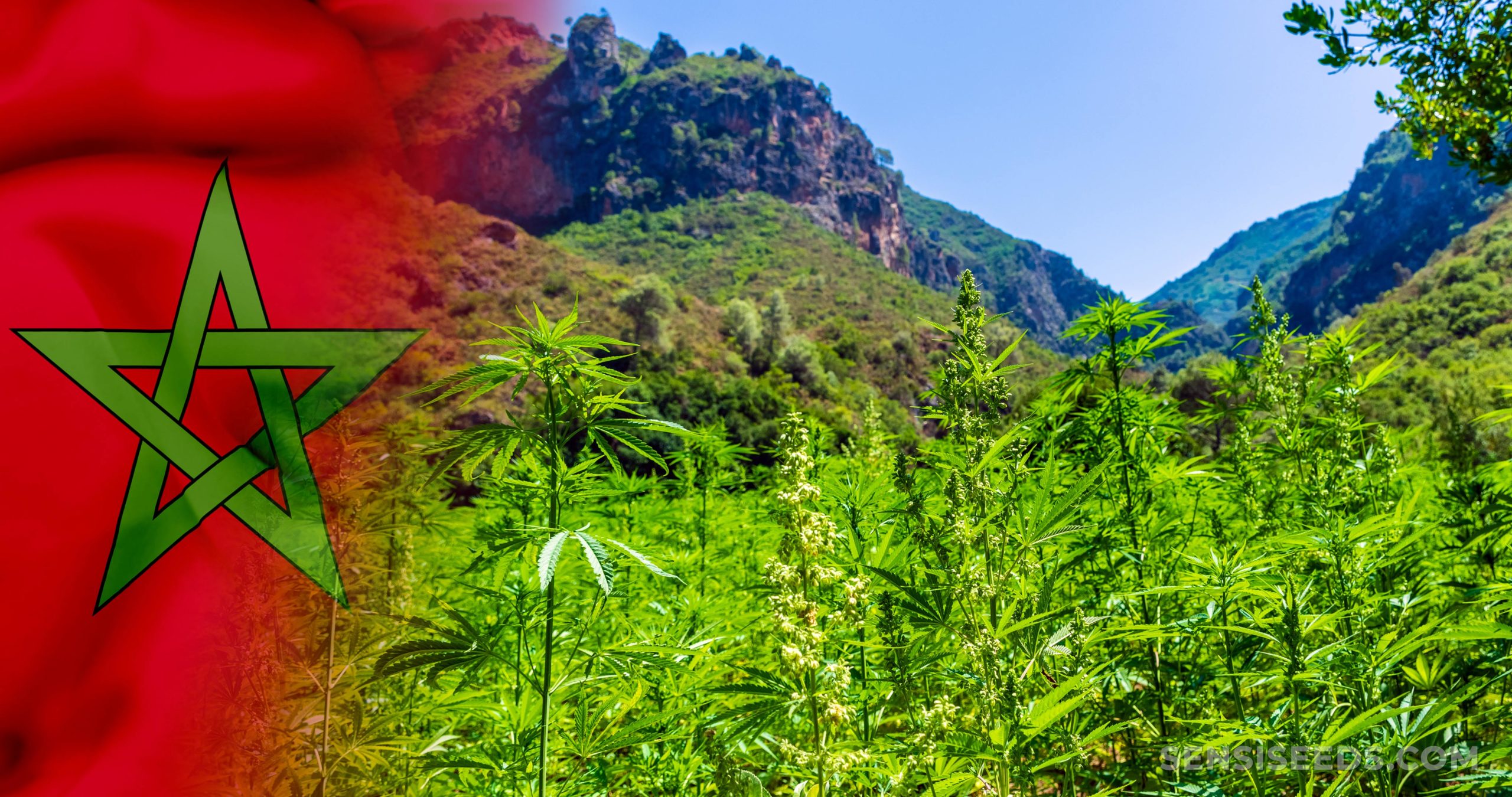
It is noteworthy that the currently legally cultivated and processed cannabis in these areas is based on foreign seeds and imported plants, as emphasized by Adbib. The cooperative plans to initiate the planting campaign this March and establish its processing unit in the coming months, under the scrutiny of ANRAC.
Abdellatif Adbib, 65, had also advocated before UN authorities for the therapeutic effects of the plant in the context of regulated use. With a THC content of less than 1%, the main psychoactive substance, the specific Moroccan Beldia has the potential to be legally cultivated for industrial use, benefiting farmers and the regional economy.
The approval of legal Beldia cultivation in Morocco marks a significant shift in cannabis regulation in the country, opening up new opportunities in key industrial sectors and offering a way forward for farmers who have faced years of clandestinity.
Abdellatif Adbib’s initiative reflects an approach to the regulated use of cannabis, the potential benefits for society, and the local economy.
It is expected in the coming years that this plant will be legally exported to European countries where recreational and medicinal consumption is approved, countries where this measure would be fulfilled include the United States, the Netherlands, France, and Germany.
Dark Past of Cannabis Consumption in Morocco: From Eradication to Legalization
The boom in cannabis cultivation in Morocco has been fueled by global demand for this substance. Despite the traditional tolerance of cannabis consumption in the country, growing concerns about negative health effects and social implications have led to a more critical review of this stance.
Eradication Attempt (2003-2010):
In 2003, the peak of cannabis production in Morocco was reached. That year, a study by the UNODC revealed that 135,000 hectares, equivalent to 1.48% of the country’s arable land, were dedicated to cannabis cultivation, with an estimated production of 3,070 tons of resin. To address this issue, the Rabat government implemented a massive eradication policy between 2003 and 2010. This initiative sparked resistance from the historically marginalized Rif tribes, who defended this activity as their primary source of income. Despite harsh government repression, the area dedicated to cannabis cultivation decreased to 50,000 hectares by 2010.
Legalization (2020-2022):
In December 2020, the UN Commission on Narcotic Drugs approved the removal of cannabis from the list of dangerous drugs, allowing Morocco to establish a legal framework to regulate its production and use. In February 2021, the Moroccan government approved the legalization of medicinal and industrial cannabis use, aiming to seize economic opportunities, improve agricultural income, and combat drug trafficking. However, recreational use remains prohibited, limiting THC concentration to 0.2%. The National Agency for the Regulation of Cannabis-Related Activities (ANRAC) was established to manage cannabis-related affairs.
The law on the legal uses of cannabis was approved in May 2021, and since then, the Tanger-Tetouan-Al Hoceima region has experienced an increase in investments. In October 2022, the first ten licenses were issued under ANRAC supervision, restricted to three Rif provinces: Al Hoceima, Chefchaouen, and Taounate.
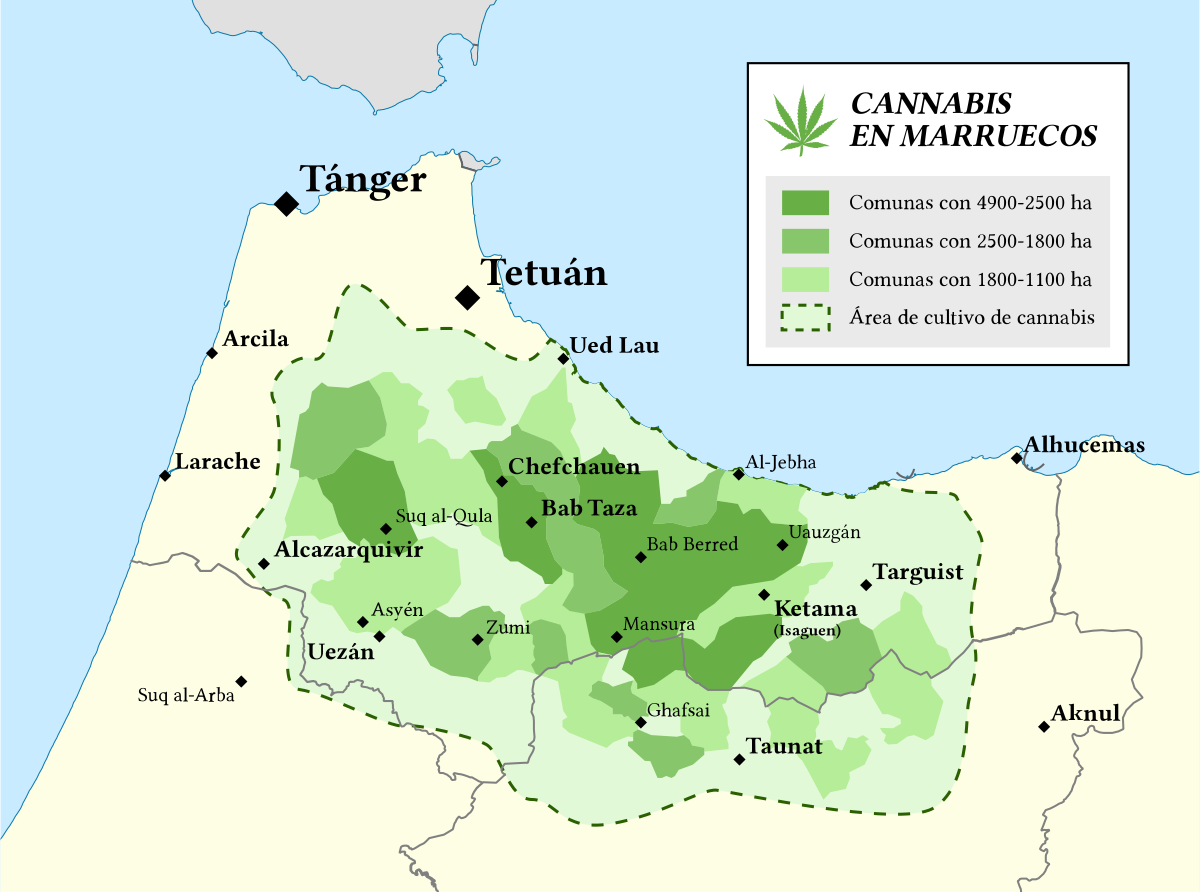
Economic Use:
As the legality of cannabis is debated in Morocco, production has begun to be decriminalized. Given the lack of other crops in the mountainous region, the government has allowed farmers to continue their small production businesses. Hashish production, both for export and tourism, has created an underground economy, providing constant employment and income for the Rif people. However, taxes threaten the income security of the farmers.
Recreational Use and Legalization Debate:
Before the internationalization of the cannabis trade, Moroccan kif was consumed locally in pipes called sebsi, used in recipes, and occasionally in Sufi religious rituals. Although cannabis was prohibited after independence, tolerance in the Rif region and its economic importance have sparked a debate on legalization.
In 2009, there was a proposal to change the perception of cannabis as a traditional herbal remedy. In 2014, the PAM proposed a bill that would keep recreational cannabis use illegal but regulate production for medicinal and industrial purposes. Although discussions about cannabis legalization were taboo, there has been an increase in recent debates and support. Some advocate for controlled legalization as a solution to combat the black market and generate tax revenue, while others warn of potential risks.
Morocco stands at a crucial crossroads, trying to balance the preservation of its cultural heritage with the need to address the social challenges associated with cannabis consumption. How the country handles this issue will not only impact the Rif region but also influence global perceptions of Morocco and its position on the international stage.
